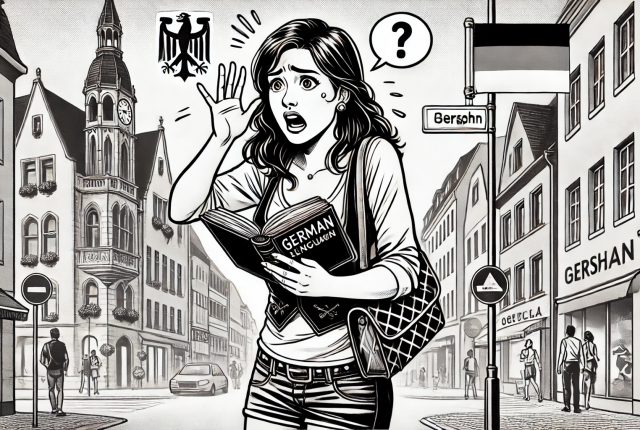
How to use separable verbs in German: German grammar for beginners
Once, while in Germany, I invited a boy whom I liked very much for coffee. As we approached the table I wanted to suggest to him that he make himself…

Funktionsverbgefüge, or noun-verb phrases in German
Do you have to live in Germany to learn to speak like a real German? Of course it’s a great way, but you don’t have to go to such drastic…

“Weil” and “dass”, or conjunctions in German – a simple explanation
I remember well the feeling of excitement when I went to Germany to visit my aunt for the first time. I thought my knowledge of German was already pretty good,…

Past tenses in German – Perfekt, Präteritum and Plusquamperfekt: Explanation and examples
The first evening of my first student exchange in Germany was dedicated to integration. Students from the German university prepared a welcome bonfire for us. I remember that at first…

How to form Konjunktiv I in German
We use the Konjunktiv I for dependent speech to distance ourselves from another person’s speech and to emphasize that we are only conveying their words, not our own opinion. Konjunktiv…

Konjunktiv I, or reported speech, in German: “Habe” and “sei” – explanation and online exercises
I remember well the first time I encountered dependent speech in German. It was during my first stay in Germany, during which I worked intensively to improve my language skills….

Modal verbs in Konjunktiv II. Speculation and probability
In the “Was Wäre Wenn” song, sung by Cluedo, we have a perfect example of Konjunktiv II: “… und kämen wir nie zusammen, müssten wir uns niemals trennen.” – (…and…

Genitiv usage and examples in German: Prepositions that require the use of the Genitiv
Genitive answers the question ‘wessen?’ (whose) and is used to express ownership or belonging. Expressing ownership We use the genitive to indicate the owner or author of an object, decision…



